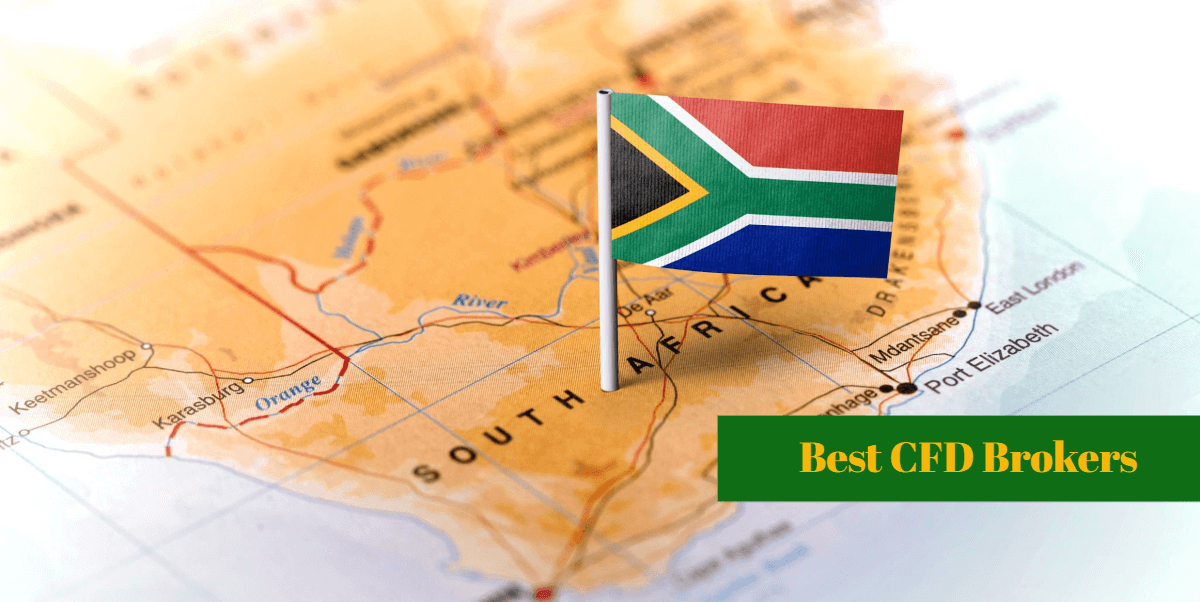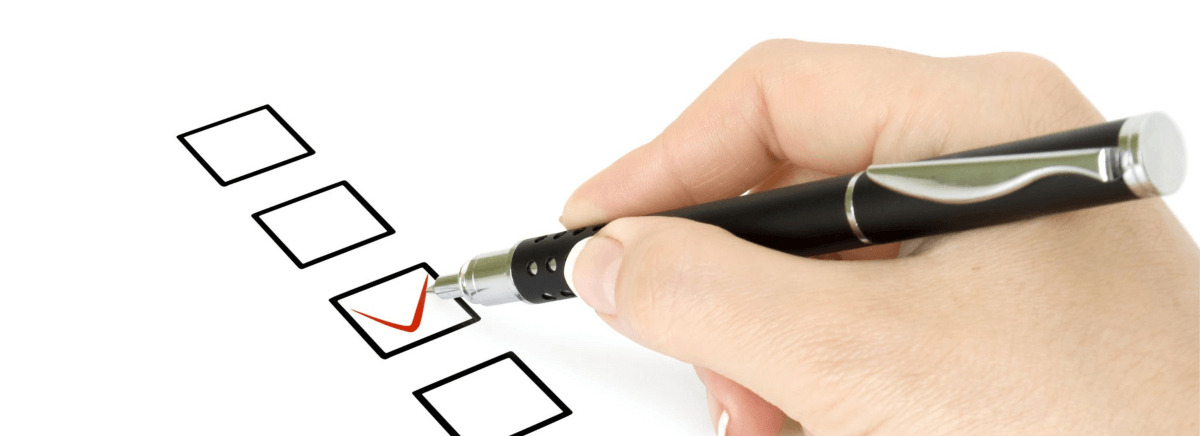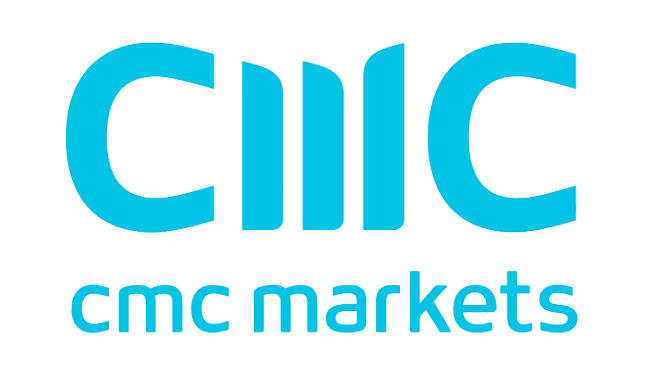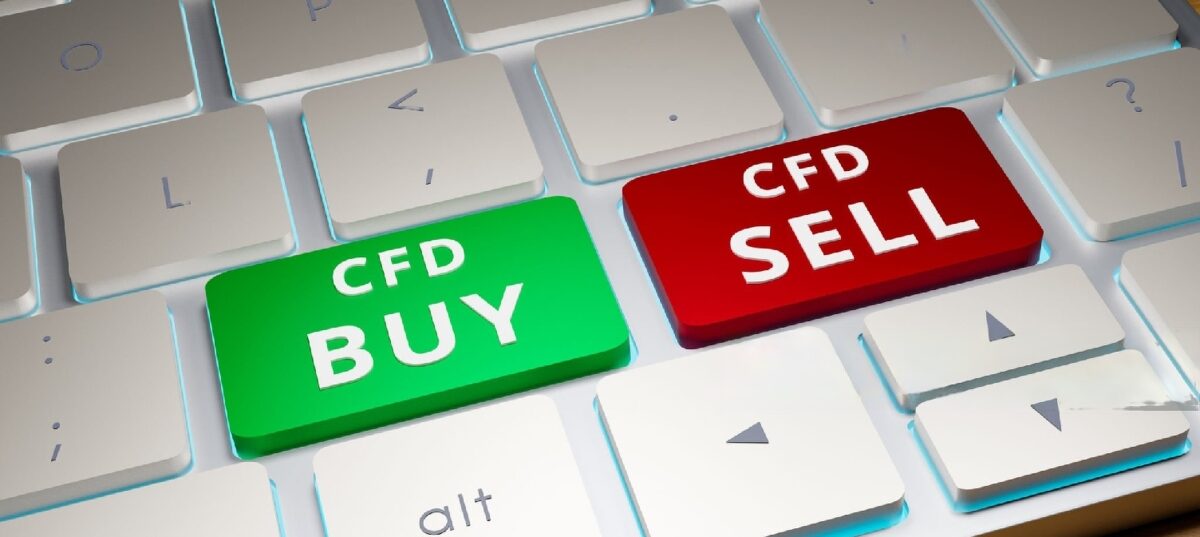
Hey there, South African Xploras! Are you curious about the exciting world of Contracts for Difference (CFD) trading?
Well, you’ve come to the right place. In this article, we’re diving headfirst into the thriving CFD market right here in South Africa. From Johannesburg to Cape Town, Durban to Pretoria, CFD trading is making waves, and we’ll find out why.
But, before you jump in, it’s crucial to have the right guidance, and that’s where CFD brokers come into play.
Imagine that you’ve got a recipe for the perfect South African braai (barbecue), but you end up with tasteless, burnt chops because you used the wrong grill. Choosing the right CFD broker is a bit like that. It can make or break your trading journey.
In this article, we’ll emphasize the importance of picking the best CFD broker in South Africa in 2024. We want you to avoid the trading equivalent of burnt chops. So, let’s get started!
What Are CFD Brokers?
You might be wondering, “What exactly are these brokers, and why do I need one?” Let’s break it down.
CFD brokers are like the trusty guides on your safari through the financial jungle. They provide you with access to trade Contracts for Difference, which are essentially contracts that track the price movements of various assets without you owning the actual asset. Think of it as trading on the price changes of things like stocks, commodities, or cryptocurrencies without buying them.
CFD brokers act as intermediaries between you and the markets. They offer you the trading platform, tools, and access to the assets.
Why are CFDs a hot topic in South Africa?
Traditional trading means owning the actual assets – like buying gold bars or shares in a company. CFDs, on the other hand, let you speculate on price movements without owning the underlying asset.
Why is this a big deal? Well, it’s cost-effective and doesn’t require you to physically store assets. Plus, you can go long (betting the price will rise) or short (betting it will fall). CFDs bring flexibility to the table, and that’s why they’re gaining popularity.
Now, you might be wondering, “Why can’t I just do this on my own?” Great question! While trading CFDs is accessible, it’s not a solo adventure. You need a CFD broker like you need a GPS to explore our diverse landscapes.
These brokers provide you with a trading platform, market analysis, and leverage, which can amplify your trading power. They also ensure your trades are executed in real-time and handle the technical stuff behind the scenes. In short, they make your CFD trading journey smoother and more successful.
How to Choose the Best CFD Brokers in South Africa

Now that you know why you need to pick the right CFD broker to get started, let’s break down the key factors to consider when choosing the best CFD broker in South Africa.
Regulatory Compliance and Licensing
First things first, you want a broker that’s legit, right? Look for brokers regulated by South Africa’s Financial Sector Conduct Authority (FSCA). It’s your safety net, ensuring the broker follows all the rules and treats you fairly.
Reputation and Reliability
Word of mouth matters, especially in Mzansi. Check out the broker’s reputation. Have they been around for a while? Do they have a history of reliability and integrity? Read reviews, ask fellow traders, and do your homework. A broker with a solid reputation for reliability is like gold.
Asset Selection and Market Coverage
We know diversity makes our rainbow nation beautiful. The same applies to CFDs. Your broker should offer a wide range of assets – from stocks to forex to commodities. The more, the merrier.
Trading Platforms and Tools
A good trading platform is like a well-tuned vuvuzela – it makes all the difference. Check if the broker provides a user-friendly trading platform and valuable tools like charts and analysis. It’s like having the right gear for a safari. Test their demo account to see if it suits your style.
Trading Costs and Fees
Nobody likes hidden costs, right? Be crystal clear about the fees – spreads, commissions, overnight charges. It should be as transparent as our Indian Ocean waters.
Leverage and Margin Requirements
Leverage can amplify your gains, but it can also magnify your losses. To safeguard retail traders from undue risks, South African regulators have imposed limitations on leverage. So, it’s essential to keep these limits in mind. Presently, these limits stand at 30:1 for major currency pairs and 20:1 for non-major currency pairs.
Risk Management Features
South Africans are known for their ingenuity. Your broker should offer risk management tools like stop-loss orders to help protect your capital.
Customer Support and Education
Good customer support is like a warm plate of bobotie on a cold day – comforting. Make sure your broker offers reliable customer support. Also, check if they provide educational resources, especially if you’re new to CFD trading.
User Reviews and Recommendations
Don’t underestimate the power of the people. User reviews and recommendations can give you valuable insights into a broker’s performance from folks who’ve been there, done that. Just remember, what works for one person might not work for another, so do your own research too.
Six Best CFD Brokers in South Africa
We’ve done some digging and want to introduce you to six of the best CFD brokers in South Africa. The best part? They’re all FSCA-regulated, so you can trade with confidence. Let’s meet them!
1# CMC Markets

First up, we have CMC Markets. They’ve been around since 1989, making them one of the veterans in the industry. They entered the South African market in 2017, offering a solid option for CFD traders.
CMC Markets is another broker regulated by the FSCA, ensuring the safety of your funds. They provide a wide range of CFDs, including shares, indices, and commodities. What sets them apart is their powerful trading platform that caters to both beginners and experienced traders.
| Pros | Cons |
|---|---|
| FSCA regulated | Relatively high minimum deposit |
| Extensive range of CFDs | Inactivity fee for dormant accounts |
| Powerful trading platform | Limited cryptocurrency offerings |
| Comprehensive research tools | Complex for beginners |
2# FXCM

Forex Capital Markets or FXCM, has been in the CFD trading game for quite a while. FXCM has been serving the South African market for quite some time, with a history dating back to 1999. With over two decades of experience, you can be sure they know what they’re doing.
What sets them apart?
Well, they’re FSCA regulated, which means they comply with the local rules and regulations that protect South African traders. FXCM’s platform is known for its user-friendly interface, making it a great choice for both beginners and experienced traders.
Read our Full FXCM Review
They’ve built a reputation for reliability and innovation, making them a top choice for CFD trading.
| Pros | Cons |
|---|---|
| FSCA regulated for South African traders | Limited cryptocurrency CFD offerings |
| User-friendly trading platform | Higher spreads compared to some competitors |
| Extensive educational resources | Limited customer support options |
| Wide range of trading instruments | Limited local deposit options |
3# HFM

HFM, (formerly HotForex) is another excellent choice for CFD trading enthusiasts in South Africa. They too are regulated by the FSCA, offering you the security you need when trading online.
Launched in 2010, HFM has quickly gained a reputation for offering a wide range of CFDs, including forex, stocks, and commodities. HFM’s platform is known for its advanced trading tools and excellent customer support. When you choose HFM, you’re choosing a broker that understands the unique needs of South African traders.
| Pros | Cons |
|---|---|
| FSCA regulated for South African traders | Inactivity fees for dormant accounts |
| Wide range of CFD instruments | Complex fee structure with various account types |
| Advanced trading tools and platforms | Customer support response times can vary |
| Competitive spreads and trading conditions | Limited local deposit options |
4# AvaTrade

AvaTrade is a CFD broker that’s perfect for South African traders who demand quality service and regulation. They are also under the watchful eye of the FSCA, which means you can trade with confidence.
AvaTrade has been serving the South African market since 2006, and in that time, they’ve garnered a loyal following. They offer a user-friendly platform, a wide range of CFDs, and a commitment to customer satisfaction that’s hard to beat.
| Pros | Cons |
|---|---|
| FSCA regulated for South African traders | Limited cryptocurrency CFD offerings |
| User-friendly and intuitive platform | Limited local deposit options |
| Comprehensive educational resources | Inactivity fees for dormant accounts |
| Wide range of trading instruments | Limited customer support options |
5# Markets.com

Next on our list is Markets.com. These guys have been in the game for quite some time, launching back in 2008. What’s great about Markets.com is that they are regulated by the FSCA, which means they comply with South African regulations to ensure a safe trading environment for you.
With Markets.com, you can access a wide range of CFDs, including forex, stocks, and commodities. Plus, they offer a user-friendly trading platform and excellent customer support to help you along the way.
| Pros | Cons |
|---|---|
| FSCA regulated | Limited educational resources |
| Wide range of CFDs available | Inactivity fees for dormant accounts |
| User-friendly trading platform | Limited research tools |
| Strong customer support | Limited cryptocurrency offerings |
6# Plus500

Last but not least, let’s talk about Plus500. These folks launched back in 2008 and have since gained popularity in the CFD trading scene. They are also FSCA regulated, so you can trust that your investments are in good hands.
One standout feature of Plus500 is their intuitive trading platform, which is perfect for beginners. They offer a variety of CFDs, including cryptocurrencies, making it a great choice if you’re interested in the crypto market.
| Pros | Cons |
|---|---|
| FSCA regulated | Limited variety of CFDs compared to others |
| Intuitive trading platform | Limited advanced trading features |
| Suitable for beginners | No MetaTrader support |
| Offers cryptocurrency CFDs | Limited educational resources |
How Do CFD Brokers Work?
So, you’re keen to dive into the world of CFD trading, right here in sunny South Africa but not sure where to start? No worries, we’ve got your back.
Opening an Account with a CFD Broker
First things first: Opening an account with a CFD broker. It’s as easy as ordering a bunny chow at your favorite local spot.
You start by selecting a reputable CFD broker operating in South Africa. Make sure they’re registered with our financial authorities for that extra peace of mind. Then, you’ll need to provide some personal info and prove your identity, standard stuff. Once that’s sorted, deposit some funds, and boom, you’re in!
Accessing Various Financial Instruments
Now, here’s where it gets exciting. CFDs let you access a wide range of financial instruments. We’re talking about stocks, forex, commodities, and more. It’s like having the keys to a financial buffet. You don’t actually own these assets, but you speculate on their price movements.
This means you can trade on international markets without leaving your braai. Keep in mind, though, this comes with risks, and it’s essential to understand what you’re trading.
Leveraged Trading and Margin
Leverage – the big “L” word in CFD trading. It’s like borrowing money from your buddy to place bigger trades. In South Africa, CFD brokers often offer leverage, which can amplify your gains. But remember, it can also magnify your losses. It’s like surfing the Durban waves; exhilarating but risky. So, use it wisely.
And to use leverage, you’ll need to know about “margin.” It’s the money you need to put down to open and maintain a leveraged position. Think of it as your surfboard – you can’t ride the waves without it.
Understanding Market Makers
Market makers, not to be confused with the guy who makes your bunny chow, are a vital part of CFD trading. They’re the brokers’ counterparts in your trades. When you buy or sell a CFD, the market maker takes the opposite position. They keep things flowing smoothly.
Remember, their interests might not always align with yours, so it’s smart to choose a broker with transparent practices.
CFD Trading in South Africa
Now, let’s talk about the South African CFD market – our own little corner of the financial world. It’s vibrant and growing, just like our diverse culture. With the rise of online trading platforms, it’s easier than ever to join the CFD party.
Regulatory Framework for CFD Trading
Safety first, folks! The FSCA keeps an eye on CFD trading in South Africa. They make sure our brokers play by the rules and protect your interests. Always trade with FSCA-regulated brokers to stay on the safe side.
Popular CFD Instruments in South Africa
Now, let’s talk shop. In South Africa, some CFD instruments are more popular than a braai on a Saturday afternoon. Forex pairs, like the Rand and Dollar, are top choices. Gold and platinum are also hot picks, considering our mineral-rich land.
And, of course, cryptocurrency CFDs are a hit. Bitcoin, Ethereum, and more are on the menu. You can speculate on their price movements without actually owning the coins. It’s like crypto without the wallet.
And let’s not forget about our local stock market, the JSE (Johannesburg Stock Exchange). CFDs allow you to trade the biggest companies listed here without owning the shares.
Tips for Successful CFD Trading in South Africa

As with any adventure, preparation is key. Here are some CFD trading tips to help you attain success:
Creating a Trading Plan
Picture this: You’re about to embark on a road trip across South Africa. Would you start driving without a map or a plan? Of course not! Similarly, in CFD trading, you need to create a solid trading plan.
- Set Clear Goals: Define what you want to achieve. Are you trading for short-term gains or long-term wealth accumulation? Knowing your goals will guide your decisions.
- Risk Management: Determine how much you’re willing to risk on each trade. This helps you protect your capital and prevents you from going all-in on risky bets.
- Entry and Exit Strategy: Decide when to enter a trade and, more importantly, when to get out, whether it’s to lock in profits or cut losses.
Remember, your trading plan is your North Star. Stick to it!
Staying Informed with Market Analysis
South Africans are known for their resourcefulness. Apply this mindset to your trading by staying informed:
- Keep Up with News: Local and global news can impact markets. Economic reports, political events, and even the weather can influence prices.
- Technical Analysis: Learn to read charts and use technical indicators. They can provide valuable insights into potential market movements.
- Fundamental Analysis: Understand the underlying factors affecting the assets you’re trading. This can help you make informed decisions.
Practicing with Demo Accounts
Practice makes perfect, and in CFD trading, a demo account is your training ground:
- Risk-Free Learning: Most brokers offer demo accounts where you can trade with virtual money. Use this to familiarize yourself with the platform and trading strategies.
- Test Your Strategies: Try out different trading strategies without risking real funds. It’s like a dress rehearsal for your trades.
- Build Confidence: Gain confidence in your trading skills before diving into the real market.
Monitoring and Evaluating Your CFD Broker
Your choice of CFD broker can make or break your trading experience. Here’s how to evaluate them:
- Regulation: Ensure your broker is regulated by a reputable authority in South Africa, like the FSCA.
- Fees and Spreads: Compare fees and spreads among brokers. Lower costs can significantly impact your profitability.
- Customer Support: Test their customer support – you might need it someday. A responsive and helpful support team is a big plus.
- Trading Platform: Check if the trading platform is user-friendly and offers the tools you need for analysis.
Take Away
In conclusion, South Africa offers some of the best CFD brokers, and the six we’ve discussed here—Markets.com, HFM, Plus500, AvaTrade, FXCM and CMC Markets—are all FSCA regulated, giving you peace of mind as you venture into the world of CFD trading.
Remember, CFD trading can be thrilling, but it’s not a get-rich-quick scheme. It requires patience, discipline, and continuous learning. Stay true to your plan, keep your emotions in check, and you’ll be on your way to becoming a successful CFD trader in South Africa. Happy trading! 📈💰
